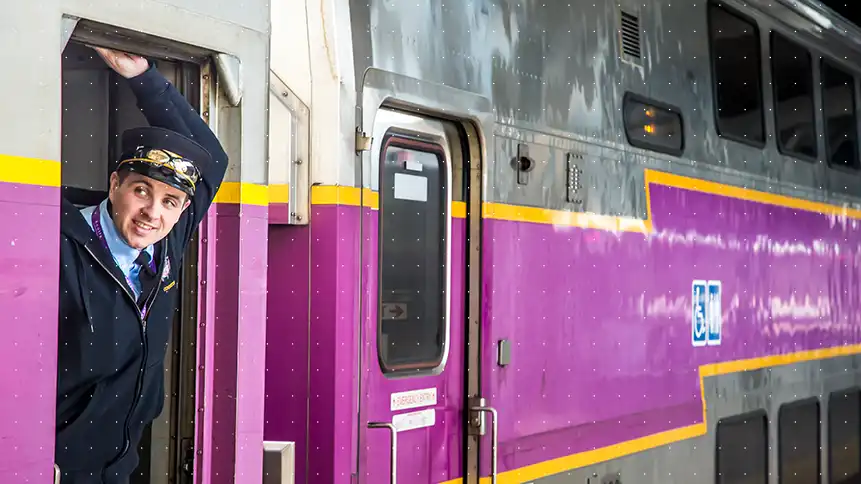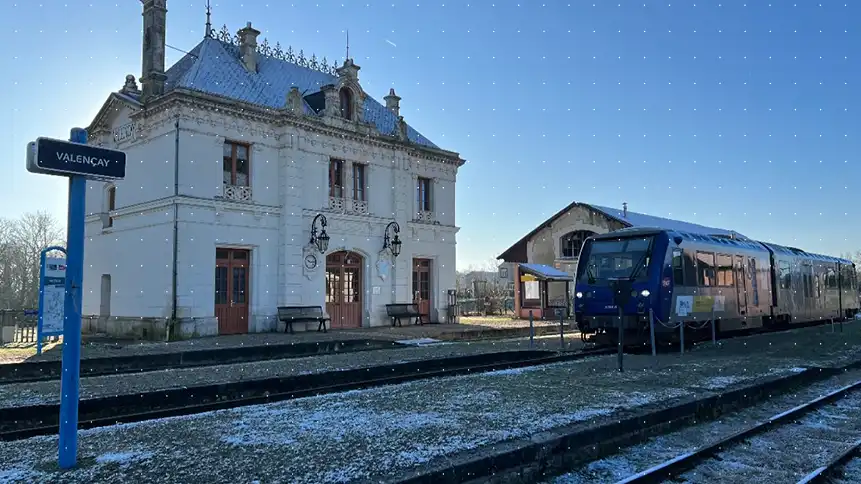Porté par sa capacité à relier les territoires, le confort qu’il offre aux voyageurs et sa faible empreinte carbone, le train est un moyen de transport plébiscité dans le monde entier. Fort de son expérience dans la conception, l’exploitation et la maintenance de réseaux multimodaux, Keolis propose une offre ferroviaire durable et toujours mieux adaptée aux besoins des territoires.
Une référence mondiale du train
Expert mondial de la mobilité partagée, Keolis relie les territoires par le train, en France et dans le monde.
Fin 2023, le Groupe a étendu son expertise ferroviaire aux Pays-Bas. Présent dans le pays depuis 1999, Keolis exploite aujourd’hui la ligne interurbaine Valleilijn, reliant Amersfoort (province d’Utrecht) et Ede-Wageningen (province de Gelderland). D’une longueur de 34 km, elle dessert 350 000 habitants et huit stations.

L’expertise ferroviaire sur trois continents
- 2 500km de lignes ferroviaires en exploitation
- 12réseaux ferroviaires régionaux en service dans 5 pays : Australie, États-Unis, France, Pays-Bas, Royaume-Uni.
- 1eropérateur privé à exploiter un réseau ferroviaire de transport de passagers en Australie, à Adelaïde, pour desservir 1,3 million d’habitants.
Le train, un maillon-clé du réseau de transport local
Keolis s’efforce de garantir une offre de transport du premier au dernier kilomètre. Pour cela, le Groupe travaille avec chaque Autorité Organisatrice de Mobilité pour mettre en place des pôles d’échanges multimodaux, une signalétique claire, et des combinaisons multimodales optimales avec l’ensemble des modes de transport présents sur le territoire : trains, métros, tramways, bus, voitures ou vélos en libre-service, etc. En facilitant les déplacements de milliers de voyageurs, Keolis contribue au développement économique des territoires, mais aussi à l’emploi.
La qualité au service du bien-être des voyageurs
Simplifier le quotidien des voyageurs
Soucieux de rendre l’expérience des voyageurs toujours plus agréable, Keolis met les technologies digitales au cœur de ses réseaux ferroviaires.
Dans les provinces de Gelderland et d’Overijssel aux Pays-Bas, Keolis a déployé une application MaaS (Mobility as a Service) qui permet aux clients des trains nationaux et régionaux de réserver, payer et valider leurs billets de transport directement depuis leur smartphone. Ils peuvent aussi vérifier leurs horaires et planifier leurs trajets multimodaux à la carte, grâce à l’intégration des autres modes de transport présents dans la région.
Clarté de la signalétique, informations sonores et visuelles, service client, accessibilité des supports : Keolis accorde une grande attention à la qualité de l'information fournie aux voyageurs.
Améliorer le confort des passagers
Keolis intègre la modernisation des trains existants dans son offre d’exploitation, comme en Hollande : toilettes, sièges plus larges et confortables, wifi performant, points de connexion USB et prises de courant apportent bien-être et praticité aux voyageurs pendant tout leur trajet.
Il propose aussi des solutions pour optimiser le flux voyageur avec, par exemple, le réagencement des rames et l’augmentation du nombre de sièges.
Des trains au rendez-vous grâce au Big Data
Keolis déploie son expertise de maintenance prédictive sur les lignes ferroviaires qu’il exploite. Grâce à des logiciels de gestion des actifs (ou asset management), le Groupe anticipe les défaillances de matériels pour une qualité de service aux voyageurs optimale.
Aux États-Unis, où il exploite les 14 lignes, 139 stations et 640 km de voies du Grand Boston, Keolis a équipé les trains trentenaires de MBTA avec des capteurs. Ces derniers sont capables de compter le nombre de passagers, d’enregistrer les vibrations, de mesurer la température des rames ou encore de détecter les éventuels dysfonctionnements des portes. Les données sont centralisées, analysées, traitées par des algorithmes prédictifs. Objectif ? Planifier les opérations de maintenance, limiter les pannes et les retards, mais aussi ajuster le nombre de rames en fonction de l’affluence, pour un confort sans cesse amélioré.
Une mobilité plus durable avec le train
Alternative à la voiture individuelle, le voyage en train est un premier pas pour maîtriser l’empreinte carbone des transports.
Keolis souhaite aller encore plus loin dans la mobilité décarbonée. Aux Pays-Bas, le nouveau contrat d’exploitation remporté fin 2023 inclut la reprise de sept trains électriques.

